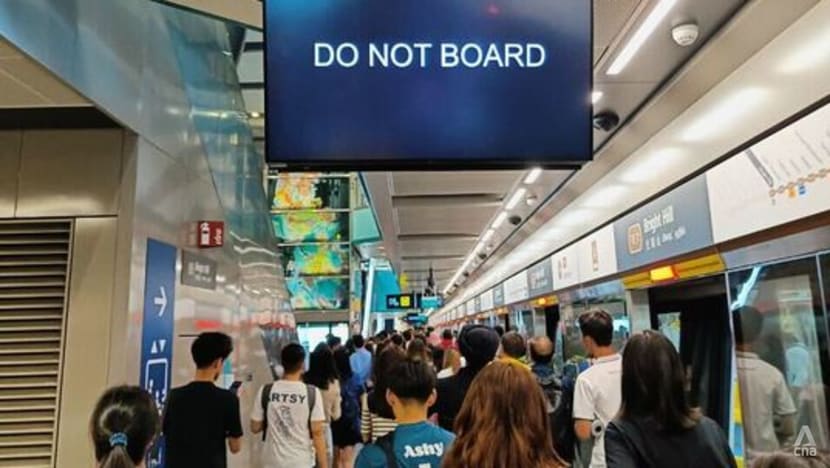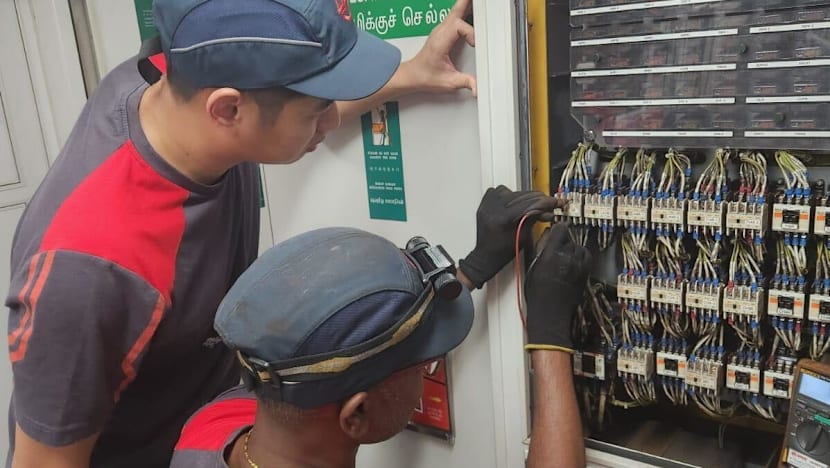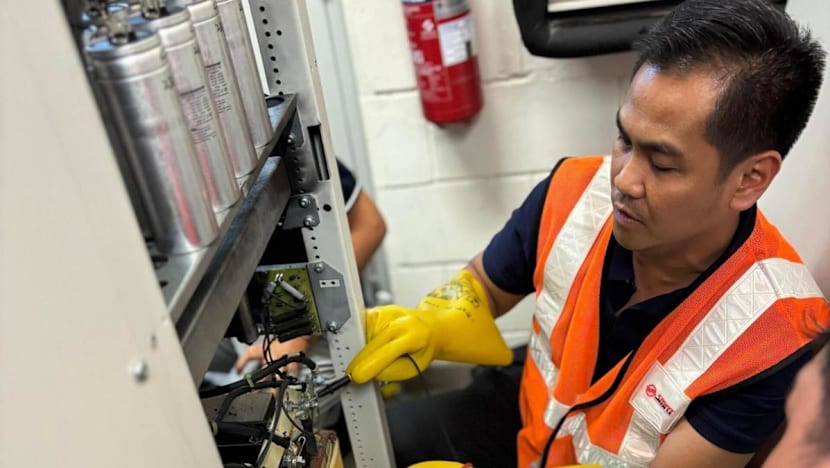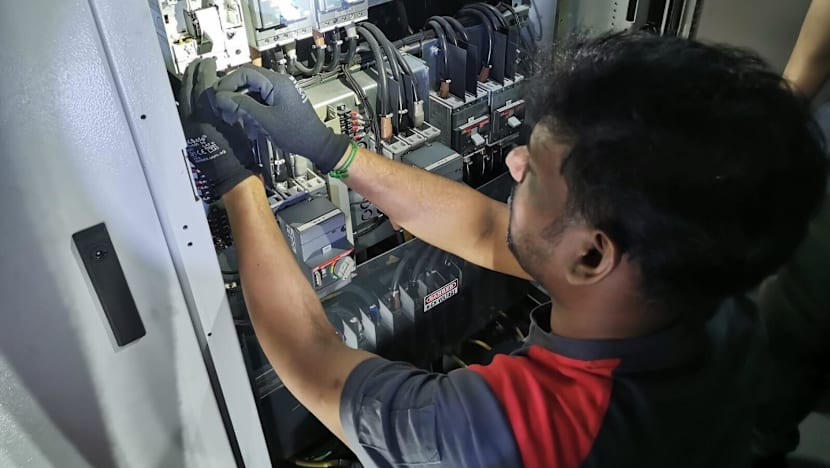SMRT says recent train disruptions are isolated cases, not systemic issues
The transport operator will carry out a detailed assessment of its rail assets, SMRT's president of trains says.

Commuters at Bright Hill MRT station during a disruption on the Thomson-East Coast line on Sep 17, 2025. (Photo: CNA reader)

This audio is generated by an AI tool.
SINGAPORE: SMRT has said that recent train disruptions were unrelated incidents and do not point to wider issues with Singapore's rail network.
"These are isolated cases, not systemic issues," Mr Lam Sheau Kai, the transport operator's president of trains, told the media on Wednesday (Sep 17).
"In each situation, our staff acted swiftly to prioritise commuter safety, deploy recovery measures and provide free bus bridging services."
Mr Lam was speaking after three train disruptions occurred on separate train lines operated by SMRT in the last four days.
On Wednesday morning, train services on the Thomson-East Coast Line were disrupted for about two hours due to a signal fault.
A day before, a signalling fault on the East-West Line left services unavailable between Aljunied and Tanah Merah stations at about 11pm.
On Sunday, a train fault occurred on the North-South Line that resulted in a 40-minute delay.
For the Thomson-East Coast Line disruption on Wednesday, SMRT had posted an alert on Facebook at 7.30am asking commuters to factor in an extra 15 minutes of travel time between Woodlands North and Bayshore stations.
At 9.05am, it was announced that services were suspended for about 30 minutes in order to reset the system.
However, some commuters took to social media to voice their discontent, saying that the disruption was longer and they were stuck in trains for over two hours.
Mr Lam said SMRT recognised that there is "room for improvement on ground communications for each incident".
"The impact on each commuter varies depending on where one is within the train network," he added. "This is an area that we are looking to work on with the Land Transport Authority (LTA)."



SMRT will work closely with LTA in several areas to strengthen rail reliability, Mr Lam said. This includes a detailed assessment of its rail assets as part of what he called a commitment to long-term reliability.
"We will strengthen lifecycle management of our rail system, accelerate asset renewal and upgrading where needed."
SMRT will also conduct technical audits of critical systems – including power, signalling, train and track systems – to identify gaps and improve response procedures.
Another focus will be on shortening incident recovery times. "Without compromising safety, we will do our best to shorten the recovery time to further support commuters," Mr Lam said.
"Safety precautionary measures, which typically take two to three hours, are necessary to ensure the protection of all. We recognise the inconvenience these incidents cause, and sincerely apologise to affected commuters."
Since the start of September, SMRT has rolled out enhanced crowd management measures at major interchanges during peak hours, with staff members using improved tools to guide passengers, Mr Lam added.
He did not take questions from reporters.
Apart from the three breakdowns, there were several others that occurred in September.
These other incidents included:
- A system fault on SBS Transit's Punggol LRT on Sep 13, which disrupted services across all 15 stations
- A train fault that led to a disruption on the North-South Line on Sep 2 between Yishun and Woodlands stations
- A train fault on the Circle Line on Sep 1 caused a delay between Promenade and Marina Bay stations
LTA's figures released on Sep 5 showed that overall MRT reliability from July 2024 to June 2025 dropped to its lowest level in five years.
The MRT network on average clocked about 1.6 million train-km from July 2024 to June 2025 without service delays lasting more than five minutes, which is the shortest distance trains have travelled without service delays since 2020, when trains clocked about 1.45 million train-km between delays.
LTA publishes the reliability figures using a 12-month moving average of mean kilometres between failures (MKBF) – a metric that measures train reliability.
This tracks the average distance that a train travels before it encounters a delay of more than five minutes.
The authority has set an MKBF target of 1 million train-km for the MRT network.














